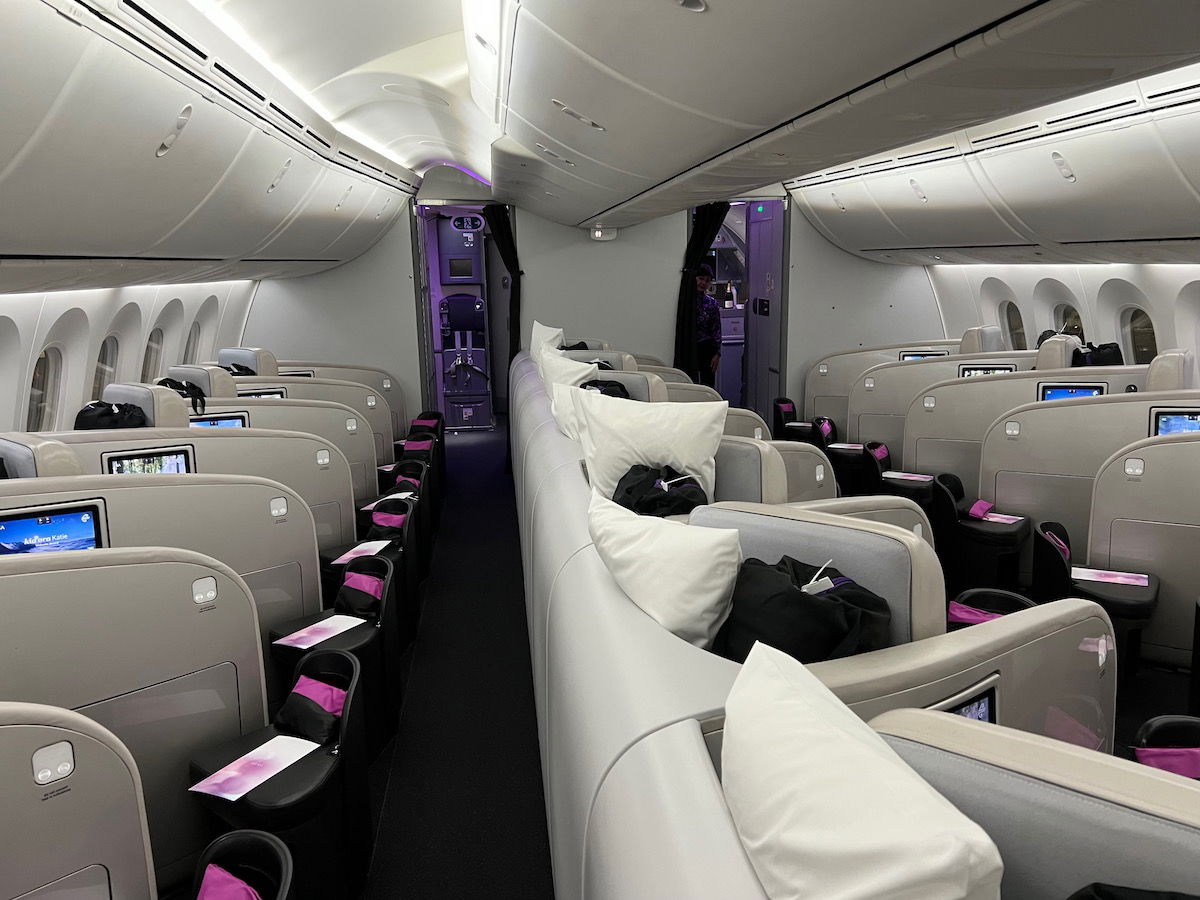A few weeks ago, Lufthansa made headlines for issuing a statement about banning Apple AirTags. The airline ended up backtracking. Well, there’s now another airline that seemingly wants to go down this rabbit hole.
Air New Zealand’s website indicated that battery-powered baggage trackers are only allowed in checked bags if they can be turned off. An Air New Zealand spokesperson has confirmed that this ban applies to Apple AirTags, though says that this may be reconsidered in 2023, as part of a safety review:
“As products such as the AirTag and Tile are portable electronic devices that cannot be turned off, dangerous goods regulations currently prohibit them from being carried in checked-in luggage. As part of Air New Zealand’s safety management system, a review of these products is likely to take place in early 2023. Following this, discussions with the regulatory authority may be undertaken.”
Oddly New Zealand’s Aviation Security Service, which is responsible for screening bags, has stated that it’s under no instruction to remove these trackers from bags. Furthermore, Jetstar, another airline operating in New Zealand, says passengers are welcome to use AirTags and other similar devices.
As far as enforcement of this policy goes, it doesn’t seem like Air New Zealand really has a plan for that. An airline spokesperson has stated that travelers are asked if they’re carrying prohibited goods when checking in, and if passengers say they are, they’ll be asked to remove them from their luggage before proceeding with the check-in process. In other words, this relies on passengers having the same policy interpretation Air New Zealand does, and volunteering that they have AirTags.
For those not familiar, Apple AirTags have become incredibly popular for travel lately. You can place them in your bag, and then it will track it throughout the journey. Given how unreliable airlines have been in the past couple of years, this is a way for travelers to take some matters into their own hands.

This is something regulators should address
It sure seems like issues could be avoided going forward if the International Civil Aviation Organization (ICAO) issued clear guidance regarding Apple AirTags, and similar devices. The organization’s instructions for the safe transport of dangerous goods indicate that lithium batteries contained within devices are allowed in checked baggage, but the device must be switched off.
Obviously switching off an AirTag would completely eliminate the point of having it, which is to track your bag. Air New Zealand isn’t technically wrong, the company is just following ICAO’s guidance in a literal manner.
Do AirTags present any sort of material risk of fire in an aircraft cargo hold? I’m not an expert on that, though I’d think that global regulators would have come out and explicitly addressed this if that were the case.
Instead it seems we’re currently in a situation where most airlines and national regulators are continuing to allow this, because it doesn’t seem like AirTags pose a risk. However, it seems to me like something should be decided one way or another here, rather than each airline interpreting regulations as they see fit. It can’t be safe to check an AirTag on a Jetstar flight, but not on an Air New Zealand flight.

Bottom line
Air New Zealand has become the latest airline to ban AirTags, though is seemingly not enforcing this restriction. The airline is interpreting the general restriction on lithium batteries in checked bags to also apply to AirTags. The airline isn’t technically wrong based on existing guidance, but this isn’t how the industry is overwhelmingly interpreting the current rules.
Hopefully ICAO and other regulators issue clear-cut guidance on AirTags sooner rather than later, so this doesn’t keep happening. Then again, without enforcement, this restriction is only theoretical.
What do you make of Air New Zealand’s ban on Apple AirTags?




